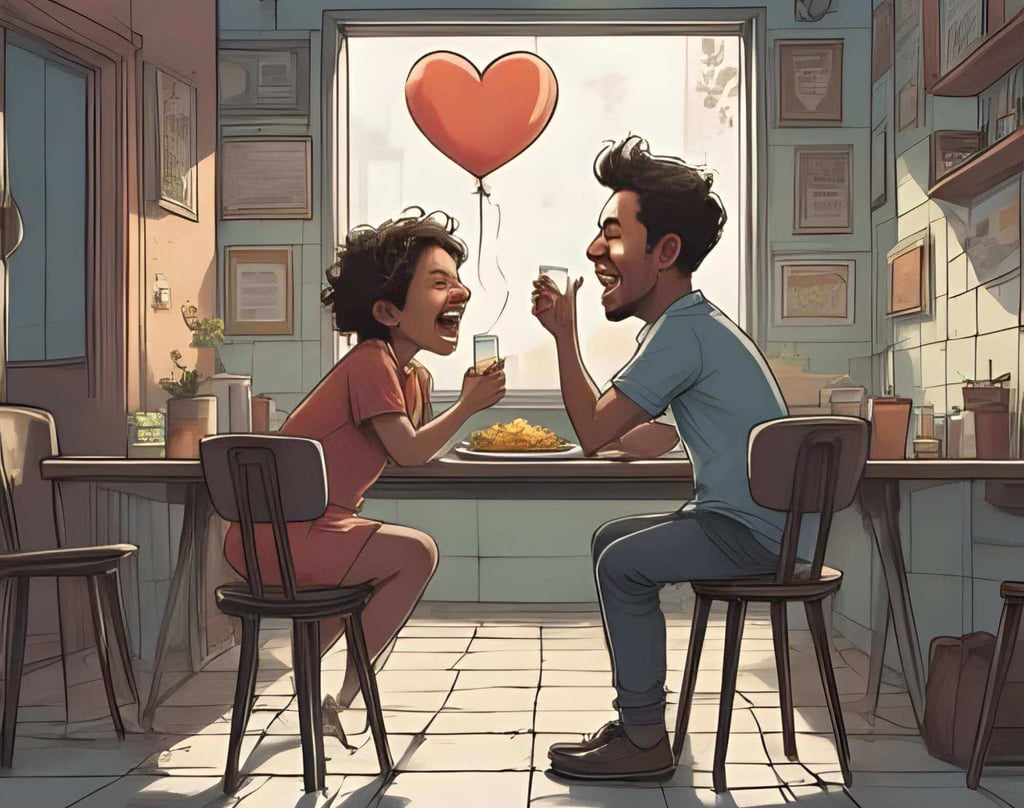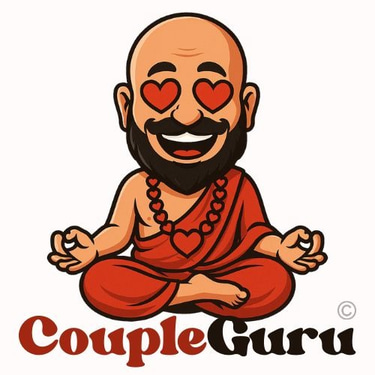Dating After Divorce (How to Start Fresh & Find Love Again)
By CG
8 min read


Divorce isn’t the end. It’s your unexpected reboot. Here’s how to date again without the baggage, the drama, or the panic sweat.
The ink on the divorce papers is barely dry. Your friends say you should get back out there. Your heart isn’t so sure. Your brain is negotiating a treaty with your stomach about the next Tinder swipe. Sound familiar?
First things first: you’re not broken.
More than 40% of first marriages in the U.S. end in divorce. You’re not a statistic. You’re a person who grew, changed, and lived through something massive. Now you get a second shot at love. This time, with way more wisdom and better playlists.
Step One: Make Peace With The Past (Without Rewriting It)
You don’t need to pretend your ex never existed. That’s not healing. That’s emotional Photoshop. Instead, own your story. Think of it as your personal origin tale—the part where the hero (you) survived a storm and is now building something better.
The real healing begins when you stop seeing the past as something to bury and start treating it as something to understand. Journaling, therapy, conversations with trusted friends—these aren't cheesy self-help tricks.
They're tools that help you process, sort through the emotional clutter, and keep only what serves you. People who reflect on their past with clarity and kindness (rather than blame or shame) tend to have stronger, more secure relationships in the future. Why? Because they’re not dating to fix old wounds. They’re dating because they’re ready.
Step Two: Rewire What You Think Dating Is Supposed To Be
Dating after divorce is not a sequel. It’s a whole new genre.
This time around, you're not looking for "the one who completes you." You’re looking for someone who compliments the full, complicated, brilliant person you already are. You're not going into this to patch up loneliness. You're entering with curiosity, not desperation.
It’s tempting to treat dating as a competition—who’s hotter, funnier, more "together"—but that’s a trap. The real game-changer? Treat dating as research. You're gathering data about what works, what feels good, and who brings out your best self. It's not about perfection. It's about connection.
Step Three: Confidence Isn’t Loud, It’s Real
Real confidence doesn’t come from six-pack abs or smooth one-liners. It comes from knowing who you are, what you want, and what you absolutely will not tolerate.
That kind of grounded confidence doesn’t show up overnight. It builds with every time you listen to your gut and speak your truth. Even if you stumble over your words or feel a little awkward, that’s still power. You’re being real.
Also—pro tip? Confident people ask questions. They listen. They don’t need to dominate the conversation because they’re not trying to perform. They’re just showing up, which is the most magnetic thing anyone can do.
Step Four: You Don’t Need to Be "Healed" to Be Ready
Healing is a lifelong thing. You don’t need to reach full emotional enlightenment to date again.
The myth that you have to be 100% over your ex, or that your inner peace must be glowing at a spiritual guru level, is just that—a myth. What matters more is self-awareness. Can you recognize when old patterns are popping up? Do you understand your emotional triggers?
Readiness is less about being perfect and more about being open. You’re ready if you can show up for someone without expecting them to rescue you.
Step Five: Boundaries Are Sexy
Boundaries aren’t walls. They’re filters. They help you figure out who gets access to your energy, your time, and your heart.
Being clear about your needs doesn't make you high-maintenance. It makes you honest. Think of boundaries as the manual for loving you well.
If you hate texting after 9 PM, say so. If casual dating isn’t your thing, make it clear. The right person won’t be turned off by your standards—they’ll be grateful for the clarity.
Step Six: Your Kids, If You Have Them, Aren’t a Burden
Dating with kids isn’t a disadvantage. It’s a filter for maturity.
If someone runs at the mention of your children, they’ve saved you time. Good people will understand that your kids are not a footnote—they’re a priority.
Being upfront doesn’t mean giving a TED Talk about your parenting philosophy on the first date. Just be clear. Your life includes small humans, and anyone worth sharing it with will get that.
Also, parenting teaches a lot about communication, patience, and empathy—aka, fantastic relationship skills.
Step Seven: Rejection Isn’t About You (Mostly)
They ghosted you after three magical dates? That sucks. It also says more about them than about you.
Rejection, while never fun, is a phenomenal filter. It reveals who has the emotional maturity to communicate honestly—and who doesn’t. Don’t take it personally. People ghost, flake, and disappear for all kinds of reasons. Sometimes it’s timing. Sometimes it’s fear. Often, it’s just misalignment.
Instead of spiraling, treat rejection as information. What did this experience teach you about your values, your communication style, your boundaries? That knowledge will guide you better next time.
Step Eight: Your Dating App Bio Should Sound Like You
Skip the clichés. Say something honest and fun.
Instead of: “I love travel and good food.” Try: “My suitcase is always half-packed, and I’ve been known to judge restaurants solely by their bread baskets.”
Your profile is not a resume. It’s a vibe check. The right people will swipe right on your quirks, your humor, and your honesty.
Photos matter, too. Use recent ones. Use ones where you're genuinely smiling, doing something you love. That energy translates better than the most curated selfie ever could.
Step Nine: Invest In Yourself First
Dating after divorce shouldn’t feel like a search party. It should feel like a homecoming.
Get back into your own hobbies. Rebuild your friendships. Travel solo. Take that class. Dance in your kitchen.
When you enjoy your own company, you become less willing to settle for someone who drains your peace. You’re not trying to be someone’s other half. You’re a whole person inviting someone to share your joy.
Self-love isn’t a hashtag. It’s your safety net. It’s what keeps you steady when dating gets weird, disappointing, or unexpectedly wonderful.
The Stats:
67% of second marriages end in divorce. (Source: CDC)
People who wait at least two years post-divorce before remarrying have a higher chance of success.
49% of divorced people say they learned more about themselves post-divorce than at any other point in life. (Source: Pew Research)
According to a study by Stanford, emotional availability and open communication were rated more attractive than physical appearance by 72% of participants.
